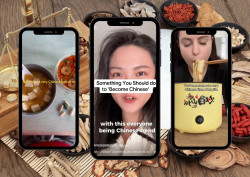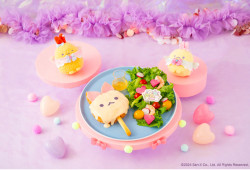
Originally published on metropolis.co.jp on January 2010
Whether it’s OLs whipping out their own chopsticks at lunchtime or drivers fretting about the eco credentials of their next cars, awareness and interest in green living have been on the rise. People are more likely to put their yen toward greener options if they can see a direct personal benefit, like cost efficiency, and a greater social value, like saving the environment.
When we try to make greener choices, the decisions seem to be based on three kinds of values and ideas. One is simply evaluating the quality of the product or service from a green angle: buying things that last longer and have multiple uses and a low ecological footprint. The second approach involves emphasizing “sharing” over “ownership.” New businesses are emerging in Japan that cater to this demand, helping people share everything from cars to used kids’ clothes.
The last approach is DIO: (Let’s) Do It Ourselves. Although I’ve been talking about “sustainability,” perhaps we need to re-define the term as “survivability,” as it’s clear that we’re running out of resources. Wouldn’t we be better off if we knew how to grow our own food, or get our own electricity from renewable sources?
It sounds difficult, but it isn’t really. In big cities like Tokyo, most homes don’t even have a yard, but internet services like Tagayashi let you search unused farms and gardens all over the country, with instructors to assist you. The merits of growing your own fruit and vegetables go beyond being able to harvest fresh, healthy food for yourself. There are additional social benefits, too: farmland gets taken care of, and Japan’s food security improves as a whole (the self-sufficiency rate is currently just 40 percent).
When you realize the merits of all three approaches, life becomes that much more fulfilling. But ironically, today’s society and systems are designed to be unsustainable, founded as they are on the principle of “more is more.” We have become so technologically advanced and materialistic that it’s easy to make our lives complex but much harder to make them simple. Think, for instance, of how difficult it is to avoid packaging at bakeries.
We also often remain ignorant about the consequences of our choices and actions. For example, how many of us take into account the impact of chemical residues, soil depletion and petroleum-based fertilizers as we pick up those bananas from the shelf?
In addition to the three individual-driven approaches, we need a systematic approach that involves re-thinking our core human behavior, re-designing the way things work, and the way we think. If these systems are incorporated into the basic institutions of society, we’ll naturally become more concerned about the choices we make, and hence take more responsibility for our planet.

Illustration by Eparama Tuibenau
These new ways of thinking came up during a Good Ideas Salon discussion held in Tokyo last October, where I participated as one of the panelists. An interesting mix of speakers, including technology guru Peter Rojas, architect Rie Azuma and otaku culture blogger Danny Choo, came together to share ideas on the theme of “pure living” and how to live more sustainably. But as we discovered, even these leading industry experts couldn’t always walk the talk.
That applies to me, too. I drive cars that run on gasoline, travel by airplane, and eat meat, if only occasionally. The point here is that nobody can be 100 percent green. We all have a dilemma because (again) the society we live in is designed to be unsustainable. So when we talk about pure living, we shouldn’t focus too much on the small details, but instead look at things holistically. That’s not to say that small actions don’t count: they do mean a lot. But try to look at the forest, and not just the tree in front of your house.
The good thing about this systematic approach is that it can only be achieved through collective, collaborative effort. We live in an era where information is freely available, everything is becoming open source, and yesterday’s enemies could be today’s friends. We need to abandon the status quo and shift from the “more is better” mindset. As Gunter Pauli, the founder of the UNU’s Zero Emissions Research and Initiatives (ZERI), says, “Sustainability is the capacity to respond to the basic needs of all, with what we already have. That’s called innovation.”
We can do better. We can do more with less.
A video of the Good Ideas Salon is viewable here







